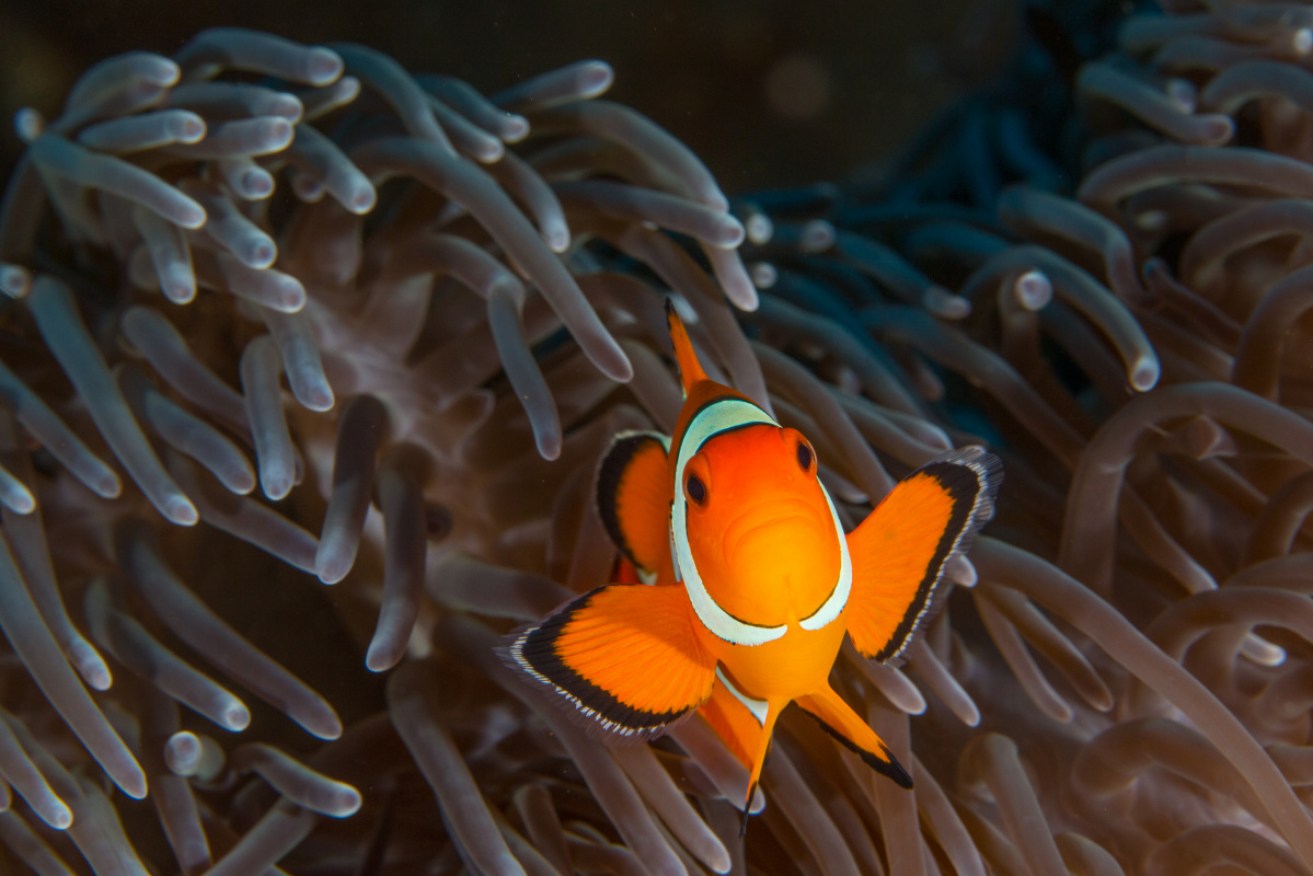Blinding Nemo: Light pollution causes clownfish breeding failure, study finds


New research finds that clownfish eggs fail to hatch when exposed to artificial light. Photo: Getty
Artificial light from coastal towns appears to be interfering with the breeding success of beloved clownfish – the orange and white-banded reef resident popularised in the billion-dollar hit Finding Nemo.
A new experimental study shows that an increasing amount of artificial light at night (ALAN) in coral reefs, even at relatively low levels, “masks natural cues which trigger clownfish eggs to hatch after dusk”.
Lead author Dr Emily Fobert, research associate in biodiversity and conservation at Flinders University, said test eggs that were incubated in the presence of artificial light “had a zero success rate of hatching, with no offspring surviving as a result”.
“The overwhelming finding is that artificial light pollution can have a devastating effect on reproductive success of coral reef fish,” Dr Fobert said.
Removing artificial light allowed the eggs to hatch
“When ALAN is present, no eggs hatched but when the light was removed during the recovery period, eggs from the ALAN exposure hatched like normal, so the presence of light is clearly interfering with an environmental cue that initiates hatching in clownfish.”
Life on earth is getting 2.2 per cent brighter at night each year via the expansion of artificial light. There are plenty of studies showing this to be detrimental to the human body clock – and disruptive to the life cycles of worms, butterflies, birds, and terrestrial and aquatic ecosystems at large.
But as the authors of the new study note, the impact of artificial light on marine systems is a relatively neglected area of research.
The mystery mechanism interfering with hatching
While the study didn’t test mechanisms that could cause this inhibition of hatching, Dr Fobert told The New Daily many coral reef species, including clownfish, have eggs that typically hatch at night.
“It’s likely this timing has evolved to increase survival of the newly hatched fish larvae, which are very small and very vulnerable to predation in those first days post-hatching,” she said.
“We think that darkness is an environmental cue that is required to trigger hatching in these species, and the presence of ALAN can mask this cue, so that embryos are ready to hatch but just never do.”
While there is no evidence yet for a significant impact on clownfish populations, “the potential is there, since essentially this study suggests that in areas with light pollution, clownfish will not produce viable offspring and therefore will not contribute to the next generation.”
“However, coral reef fish population dynamics are quite complex, often with larvae from distant reefs connecting populations tens to hundreds of kilometres apart, so it is hard to predict the consequences without further research. But watch this space, as this is one of the next big questions for this research.”
Will artificial light cause evolutionary dead ends?
One of Dr Fobert’s concerns for fish is that ALAN can be creating an ecological trap, where many fish are actually attracted to light, and may settle in habitats that are exposed to light pollution, only to find that these preferred environments actually reduce their fitness and ability to reproduce.
“Both questions, whether ALAN is an ecological trap for coral reef fish, and whether or not fish can adapt to these environments, are questions I would like to tackle in the near future,” she said.
Co-author Professor Stephen Swearer from the School of BioSciences at the University of Melbourne says that clownfish, along with many other fish species that lay adhesive eggs on coral reefs, are at risk because their larvae usually hatch a few hours after dusk.
“The presence of ALAN could compromise their natural spawning rhythms,” he says.
Senior author and founder of the Saving Nemo Conservation Fund, Professor Karen Burke da Silva, says improved understanding about the impact of ALAN on coral reefs can help develop solutions for stressed ecosystems.
“Artificial light at night is becoming a greater concern among ecologists, as light is spreading globally, and the impacts on organisms can be severe, but very little research has been done around ALAN in the marine environment.”








